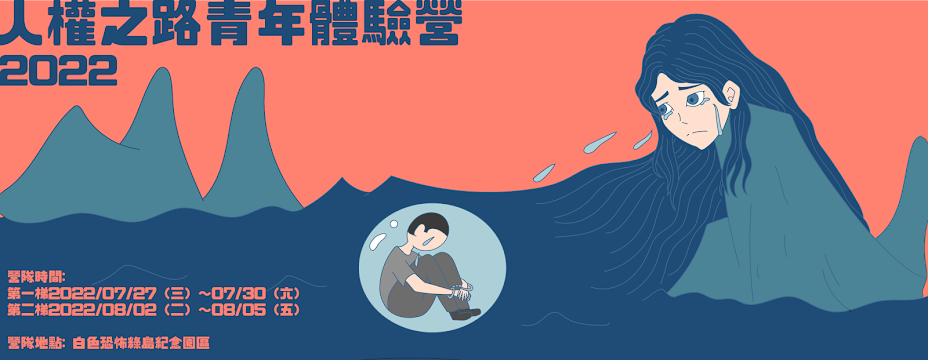 |
| 營隊中的小組討論(攝影: 陳岳) |
Another
reason is that I come from a family who experienced the communist dictatorship
and persecution in Romania (ironically, as Romania was under a communist
dictatorship, people were persecuted for not being “proper communist” whereas
the Nationalist regime did the exact opposite in Taiwan). This experience was
central for my father’s family and the exchanges I could have with my seniors,
their silences, the things half-said, explain why memory was always an
important issue for me.
To take
part to 人權之旅 gave me the opportunity to understand
the motivations of the students willing to participate, their personal
backgrounds, how they interact with each other and
with the former prisoners, in a nutshell, to exchange with them. Many people
came to “understand the history not taught in textbook” whereas a few had personal
connection with the White Terror as they knew that some case happened in their
family but did not know much about it. It was very refreshing for me to see
many enthusiastic young people eager to know their own country’s history. It is
not that there are no data on White Terror but they tend to be confined to
Academia which represents a small part of society only. It is indeed necessary
to help to relay this knowledge toward society. Much more important, it is
essential to give an opportunity for the students to directly exchange with
their seniors. They are the main reasons
to participate to 人權之旅. Even though they were victims of
the political repression and saw many years of their life taking away by the
nationalist regime, they are still willing to come back to tell their stories
to the young generation. Their joys of living, their humor, their kindness are
a great lesson for all of us. I really appreciated to see them joking with the
students, or the participants’ surprise when one of the former victim – a
communist born in Guangdong- told them not only he did not keep any hatred
toward the KMT but he even votes for the Nationalist party because- and that
brought laughter and applauses- the KMT and the Communist are now “best
friends, one going hand in hand with the other”. It is one thing to read about
White Terror or even to visit a given site with a guide, but it left a much
deeper feeling to directly talk with someone who was unfortunately imprisoned
there. Even if the ones we met are involved in many events regarding White
Terror and are used to talk about their stories, their emotions are still
palpable (可感覺到) as they, sometime in the same sentence, may
suddenly switch from humors to much sadder recollection, such as cases of
inmates becoming insane or other tragedies. In any case, we should listen while
being thankful.
To
conclude, the memory work[1] on White Terror in Taiwan is far from being
achieved. Taiwanese scholars did a remarkable work for the last twenty years,
but the results are far from being shared through the dominant social framework
of memory. The Foundation and other actors from the civil society play an
important role by diffusing this knowledge, by playing the role which should be
assumed by national education. Taiwan is still at an age where people who
witnessed totally different “Taiwanese realities” are living together, and this
cross-generational dialogue is invaluable. It is only by doing so, by giving
anyone a room to tell his own story than they may be a memory able to reflect
the truth while being shared by all the Taiwanese, overcoming the old divisions
and consolidating the foundation of a common identity, of a common future.
[1] I refer here
on the notion developed first by Paul Ricoeur which 形容 the process of collective memorial recollection, acknowledgement and
forgiven

沒有留言:
張貼留言